- Home
- Peter F. Hamilton
A Quantum Murder Page 7
A Quantum Murder Read online
Page 7
Attagirl.
She put her elbows on the desk, and pressed her palms together. "I will have Morgan Walshaw contact the Home Office directly," she said. "I think I can see how we can get this terrible crime solved quickly."
"How?" Ranasfari asked.
"The Home Office can authorize local police stations to hire specialist advisers when the circumstances warrant it."
"What sort of specialist?"
She smiled. "I was thinking a psychic might be appropriate."
Chapter Four
Greg stood behind the moss-covered stone wall of his farmyard and watched a swarm of bilious clouds buffet the southern sky, blocking out the clean gold and orange colours of the low morning sun. Fast, cool gusts of air chased random wave-patterns in the shaggy grass around the lime saplings, twitching the slate-grey water of the reservoir into small peaks.
In the long thistle-mottled field running between the groves and Hambleton Wood he could see the rabbits venturing out of their huge warrens hidden below the dead trees. Small tawny mounds sloping through the nettle clumps and spindly mildewed forget-me-nots which flourished around the rank of perished hawthorn bushes marking the boundary of the wood. There must have been over eighty of them. He and Eleanor went out on rabbit shoots two nights each week, infrared laser hunting-rifles picking off fifty at a time. It never seemed to make the slightest difference to their numbers the next morning.
The hot climate had expanded their breeding season to ten months of the year, and the impenetrable tangle of lush undergrowth in the wood meant he couldn't reach their warrens to cull them properly. A Forestry Commission logging team was scheduled to fell the dead trunks in a couple of years, replanting with Chinese pines, otherwise he would probably have torched the wood at the height of summer, and to hell with the owner. The rest of the peninsula's citrus farmers certainly wouldn't object.
Rabbits were a countrywide problem; despite the massive shooting and trapping campaigns which had turned them into a cheap staple meat, they were making serious inroads into England's food crops. The Ministry of Agriculture was holding discussions with the Farmers' Union about releasing a new virulent strain of myxomitosis. It was a nasty virus, but Greg couldn't see an alternative.
He shrugged his black leather jacket over a dark-blue short sleeve cotton sports shirt. His olive-green trousers had a tropical weave, which should keep him from sweating. He would have preferred shorts, but that was pushing it. At least he could wear comfortable suede ankle boots today, the Armani suit and shiny black leather shoes Eleanor had made him put on for the roll out ceremony had been a torture. Too stiff, too hot. It reminded him of the dress uniforms he had had to wear for regimental dinners. But at least they had been introduced to Prince Harry at the VIP reception, which made up for a lot. Then Julia waylaid him with her oh-so-reasonable favour.
He shook his head at the memory. He was irritated, more by the fact that she had automatically assumed he would help the police than being dragged back into that kind of work, but he couldn't honestly say there was any real anger. In any case, the idea of a killer as psychotic as Kitchener's stalking the district wasn't a particularly welcome one. Just so long as this wasn't going to set a precedent. The citrus groves were his life now, and hopefully children before too long.
Eleanor came out of the front door and blipped the lock. She was wearing a navy-blue waiter-cut jacket over an embroidered Indian cotton blouse, deep purple culottes. Her gaze ran over the windows she had been painting before the weekend; the frames were coated in a dull-pink undercoat, waiting for the white gloss finish. She crinkled her nose up.
"Maybe I should stay," she said, sounding unconvinced.
"Not a chance, if I have to go, so do you. I've still got those limes to plant. And our neighbouring army of killer bunnies is waiting for a chance to eat the ones I did put in, look."
She glared at the mounds of brown fur bopping about through the undergrowth. "Perhaps we ought to torch the wood after all."
He opened the EMC Ranger's door, and climbed in behind the wheel. "It's too near Hambleton, and it's not the real solution anyway."
"I suppose." She sat in the passenger seat. "I hate the idea of myxamitosis."
He drove up the slope, and into the village. The broken windows on the Collisters' cottage had already been boarded up with clean sheets of plywood and a heavy padlock held the front door shut. Someone had picked all the ripe brambles from the hedge.
Eleanor gave it a sombre look as they went past, but didn't say anything.
The EMC Ranger's fat, deep-tread tyres made short work of the slushy vegetation matting the peninsular link road. Monday night's rains had left the flat fields beside the road looking like rice paddies. They were planted with gene-tailored barley, a design which utilized the increased level of atmospheric carbon dioxide to produce high yields. Long lines of verdant green shoots as thick as his thumb were poking up through silver pools of water; flocks of gulls waded up and down the ranks, pecking up the bounty of worms which had risen to the surface.
When they reached the roundabout on the Oakham bypass, Greg steered straight round and headed down the A606. The fields of gene-tailored barley gave way to cacao plantations for the last kilometre into town. Over the last few years Oakham had gradually been encircled by the bushes, and more ground was being prepared, expanding the plantations outward like a vigorous mushroom ring. They were a valuable addition to the town's economy. The price of the seed was rising all the time as processed food factories came back on stream, bringing chocolate back into the shops; and the gene-tailored variety flowered twice a year. Their cultivation also soaked up a fair fraction of the unemployed refugees who had been billeted on the town when the Lincolnshire Fens were flooded by the rising sea.
The expanse of small amber flowers was just starting to bloom, but Greg ignored it. In his mind he was still running through yesterday afternoon's conversation with Julia.
"It'll just be half a day's work for you," she'd said. "It's really important to me. Please, Greg."
All he could see was a pretty young oval face and big tawny eyes looking up at him entreatingly. That kind of sly appeal, the not quite innocent adolescent adoration, was really below the belt. Typical Julia. The number of boys with broken hearts left in her wake could populate a small city.
"I'm a psychic," he said out loud.
Eleanor turned and gave him an expectant glance. "Yes?"
"So how come I can never win an argument with Julia?"
"Because you want to lose. You know the way she feels about you."
"Why didn't you object? This Kitchener thing, it's exactly why we moved out to the farm, to get away from it."
She flashed him a dry, knowing smile. "I didn't object because you were interested. Julia was right when she said you could clear it up in an afternoon. And once she mentioned it, you were hooked. Admit it."
"Yeah," he said. Immensely grateful that she understood, once again. Though right at the back of his mind was a tiny smack of disquiet, a subliminal certainty that something didn't quite gel. His intuition playing up again, although he hadn't used his gland since leaving the Collisters' cottage. It had started as soon as Julia mentioned Kitchener's murder at Launde Abbey. And the more he tried to resolve it, find the reason, the more elusive it became. It would come eventually, of course, and then he'd kick himself for missing the obvious.
* * * *
Inside Oakham, the road surface improved noticeably, thistles and twitch grass still burrowed up through the tarmac near the kerbs, but the streets were open to two-way traffic. Scooters and bicycles clogged the middle of the town, forcing Greg to reduce speed; horse and cart rigs queued up patiently behind pre-Warming juggernauts. The big lorries had been converted to burning methane, true dinosaurs now, paintwork scarred and fading, drive mechanisms cannibalized from a dozen different wrecks.
The ramshackle stalls which used to run the length of the High Street during the PSP years had recently been e
victed, and the tarmac sealed over with thermo-stabilized cellulose.
Greg used to enjoy the souk-like atmosphere of the town centre, but the economic upswing was steadily squeezing street traders and spivs out of national life. Die-hard stall-holders had moved back to the market square, but it wasn't the same. Shops were in vogue again. Almost two-thirds had re-opened, and he could see another three being refurbished; although they mainly sold consumer products and clothes, the market retained its hold over supplying fresh food. He wondered sourly how long it would take for the supermarket chains to re-establish themselves. Back to sanitized mass-produced packets of tasteless pap. A sure sign of prosperity.
The way the country was right now was just about perfect, he reckoned. Emerging from the nightmare past, and looking forward to a future rich with promises—most of them made by Julia.
They turned off the High Street and drove down Church Street
, past Cutts Close, the central park. It was bounded by earth ramparts, and terribly overgrown; dead oak trees lying where they had fallen, waist-high grass choking the ancient swings. The affluence of the High Street didn't extend far.
A cluster of thirty-odd sleek white and silver trailers and caravans was drawn up in the middle of Cutts Close, looking like some kind of futuristic gypsy convoy. Greg saw the corporate logos of channel newscast companies splashed on them, a thicket of tripod-mounted satellite uplink dishes pointing up into the southern sky.
His fingers tightened around the steering-wheel in reflex dismay. Of course! How stupid, he should have realized. A groan escaped from his lips.
"What is it?" Eleanor asked.
"Them!" He nodded ahead.
The police station was sited just past the bottom of the park, backing on to what had once been the famous public school's playing fields. The rugby pitches and cricket squares had long since been dug up to provide allotments for the Fens refugees displaced by the rising seas; over two hundred families had been crammed into the school buildings by the PSP Residential Allocation bureau. It was only a temporary accommodation, they were promised. Now, twelve years on, they were still waiting for proper housing.
The main part of the station was a broad two-storey building built out of drab rusty-coloured brick, roofed by steel-grey tiles. A single-storey wing jutted out of the front, almost like an afterthought, long, narrow windows facing the road. It dated from the tail-end of the last century, and despite the architect's use of curves and split levels to reduce its starkness it had a fortress-like appearance. The image wasn't helped by the relics of the People's Constables' tenure. Metal grilles had been fitted over the long ground-floor windows, black security camera globes hung from the eaves, and the entrance to the rear car park was guarded by a high fence of thin monolattice slice-wire with skull and crossbones warning signs on each post. The brickwork facing the street was covered in ghostly remnants of paint-bomb impacts and fluorospray graffiti; an ineffectual solvent wash had left several anti-PSP slogans visible. Tapering soot scars, like frozen black flames, showed where the molotovs had hit.
The rioters and celebrants who had laid siege to the station the day the PSP fell had now been replaced by the media army.
"Good God," Eleanor murmured when they reached the end of Church Street
.
Greg guessed there must have been over two hundred of them; and it was like an army, rank denoted by the uniform: reporters in smooth suits, broadcast crews in T-shirts and shorts, production staff in designer casuals. The majority had taken over the broad pavement opposite the station, although some camera operators had staked out positions on the park's earth embankment giving them a good view of the station. Several fast-food caravans had set up shop in front of the Catholic church a hundred metres further down the road. They were doing a good trade with production PM.
Greg sounded the horn as he indicated to turn into the station. A knot of twelve people were just standing in the middle of the road, channel logos on their jackets.
"Well, I suppose the local pubs will be happy," Eleanor said.
There was a lone bobby standing outside the gate in the slice-wire fence. He was about twenty-five, wearing dress whites, shorts, and half-sleeve shirt, with a peaked cap, and looking very fed up.
"Oh, bugger," Greg muttered as he lowered the window. The rear-view mirror showed him the reporters converging en masse on the EMC Ranger.
"Yes, sir?" the bobby asked.
"I'm here to see Detective Inspector Langley," Greg said. He held up his general ident card, pressing his thumb on the activation patch.
The bobby pulled out his police-issue cybofax, and the two exchanged polarized photons in a blink of dim ruby light. Reporters were clustering round the bobby, jostling to see what was going on. Two camera operators had shoved their lenses up against Eleanor's window.
"Go straight in, sir," the bobby said after his cybofax had confirmed Greg's identity. He blipped the gate lock. It started to swing open.
The action triggered off a barrage of questions from the reporters.
"Who are you, mate?"
"What have you come here for?"
"Are you a relative of Kitchener?"
"Smile for us, luv!"
Greg toed the accelerator as soon as the gate started to open, nudging the EMC Ranger towards the gap in short jerks. The bobby was trying to shove the crush of reporters to one side.
Greg switched to a broad Lincolnshire accent, and bellowed out of the open window: "I'm here to see about me bleedin' sheep, ain't I? Some bastard's been pinching 'em right out o' the field. What's it got to do with you buggers? Get out the bleeding way!"
The EMC Ranger must have added authenticity, a mudcaked farm vehicle, even though it was new and expensive. A chorus of groans went up. The reporters gave each other annoyed shrugs, and gave up.
The gate closed behind them.
Eleanor was smiling broadly. "Very good. I give it less than twenty minutes before they discover you are the Greg Mandel who had Julia Evans as a bridesmaid at his wedding."
"I expect you're right."
There were five police vehicles parked in the yard, four old EMC electric hatchbacks, powered by high-density polymer batteries, and a rust-spotted Black Maria with ten-year-old number plates. Greg parked the EMC Ranger next to a line of scooters.
There was a woman officer waiting for them. She introduced herself as Detective Sergeant Amanda Paterson, a pleasant-faced thirty-year-old with mouse-brown hair, wearing a white blouse and fawn skirt. She shook hands with a surprisingly strong grip, but her manner was fairly reserved.
"I'll take you to see Inspector Langley," she told them briskly. "He's heading the inquiry."
"Are you working on the case?" Greg asked.
"Yes, sir." There was no elaboration. She opened the door, and ushered them into the station. The air inside was cool and stale, there were no fans or conditioners to circulate it. Biolum strips screwed on to the ceiling cast a weary light along the corridor. The original electric tubes had been left in place, their pearl glass covers grey with dust.
It was all very basic, Greg thought, as she led them to the central stairwell. The grey-green ribbed carpet was badly worn, walls were scarred with rubber shoe marks above the skirting-board, cream-coloured paint had darkened, doors were scuffed and scratched and didn't even have 'ware locks.
The police didn't enjoy much public confidence right now, he knew. But starving them of money and resources was hardly going to help their morale and efficiency, certainly not at a time when the New Conservatives were trying to claim the credit for resurrecting an honest and impartial judicial system.
They passed a mess room, and three uniformed constables glanced out. Their faces hardened as soon as they saw Greg and he began to wonder just what sort of stories were orbiting the station.
The CID office was on the second floor. Amanda Paterson knocked once on the door, and walked in. Greg followed her into the noise of shrilling phones and murmuring voices. There were
six imitation-wood desks inside, three of them occupied by men, detectives in shirt sleeves typing away at their terminal keyboards, one with an old-fashioned phone handset jammed between his shoulder and jaw. They all stared at Greg and Eleanor. Metal filing cabinets were lined up along the wall next to the door, kelpboard boxes piled on top. A big flatscreen covered the rear wall, displaying a large-scale map, with half of Oakham showing as a red and brown crescent along the right-hand side. The air was warm despite two of the windows being open; a single conditioner thrummed loudly.
Detective Inspector Vernon Langley was in his late forties. He was almost a head smaller than Greg, and his dark hair had nearly vanished, leaving a shiny brown pate. He was sitting behind a desk at the head of the room, jacket draped over the back of his chair, mauve tie loosened, buttons on his white shirt straining slightly, looking about seven kilos overweight.
The desk was littered in printouts, folders, thumb-sized cylindrical memox crystals, and sheets of handwritten notes. Langley was typing on an English Electric terminal. The model was a decade out of date, and pretty inferior even when it was new. English Electric had been a nationalized conglomerate formed by the PSP, a shotgun marriage between a dozen disparate 'ware companies. Only government offices used to buy their equipment, everyone else went to black-market spivs for up-to-date foreign gear.
He stood up to greet them, wincing slightly, one hand rubbing the stiffness from his back as he rose. He had obviously been working close to his limit on the Kitchener case: his face was lined, there was a five o'clock shadow on his chin. Greg felt exhausted just looking at him.
"I wasn't informed that there would be two of you," he said as he shook hands with Eleanor.
"I act as Greg's assistant," Eleanor said levelly. "I am also his wife."
Vernon Langley nodded reluctantly as he sat back down again. "All right, I'm certainly not going to make an issue of it. Find yourself a seat, please."

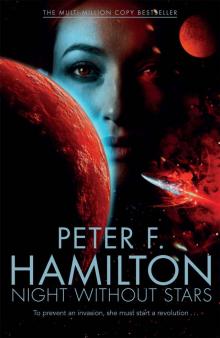 A Night Without Stars
A Night Without Stars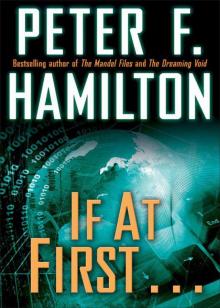 If at First . . .
If at First . . .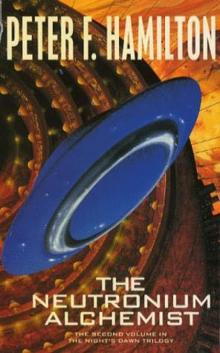 The Neutronium Alchemist
The Neutronium Alchemist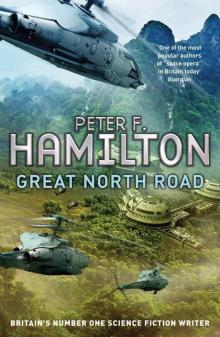 Great North Road
Great North Road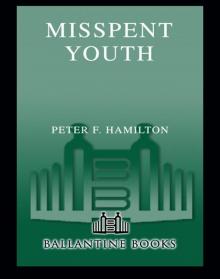 Misspent Youth
Misspent Youth Pandora's Star
Pandora's Star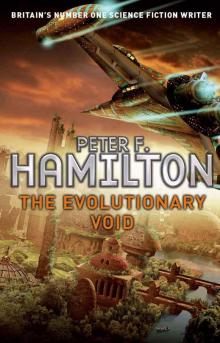 The Evolutionary Void
The Evolutionary Void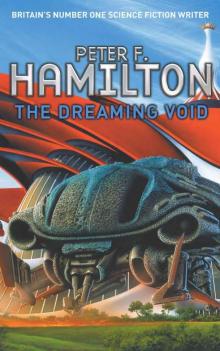 The Dreaming Void
The Dreaming Void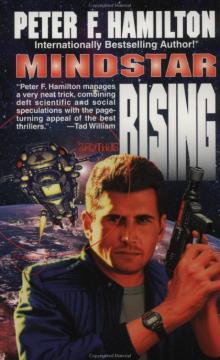 Mindstar Rising
Mindstar Rising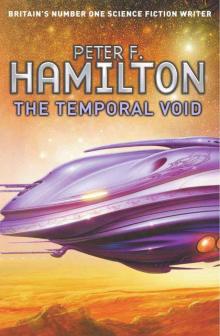 The Temporal Void
The Temporal Void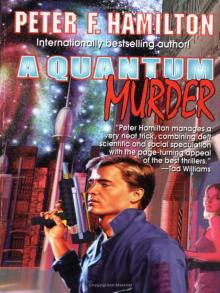 A Quantum Murder
A Quantum Murder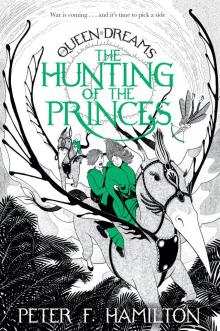 The Hunting of the Princes
The Hunting of the Princes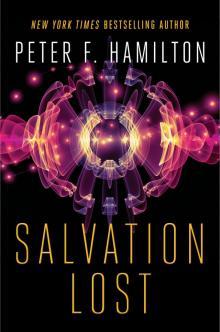 Salvation Lost
Salvation Lost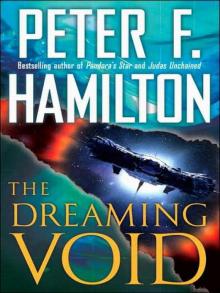 The Dreaming
The Dreaming Salvation
Salvation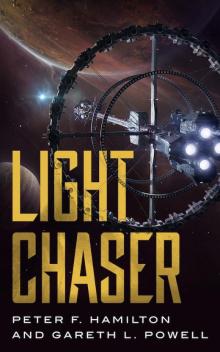 Light Chaser
Light Chaser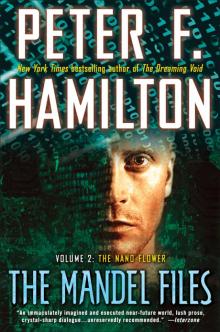 The Mandel Files, Volume 2: The Nano Flower
The Mandel Files, Volume 2: The Nano Flower![The Saints of Salvation [British Ed.] Read online](http://i1.bookreadfree.com/22/the_saints_of_salvation_british_ed__preview.jpg) The Saints of Salvation [British Ed.]
The Saints of Salvation [British Ed.]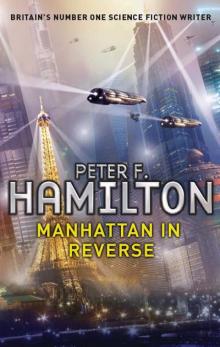 Manhattan in Reverse
Manhattan in Reverse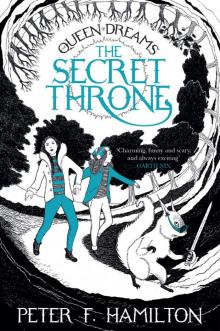 The Secret Throne
The Secret Throne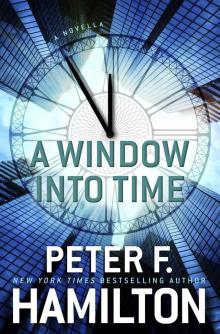 A Window Into Time
A Window Into Time A Second Chance at Eden
A Second Chance at Eden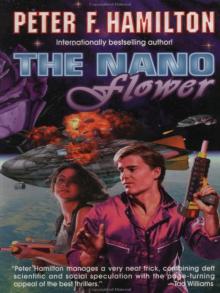 The Nano Flower
The Nano Flower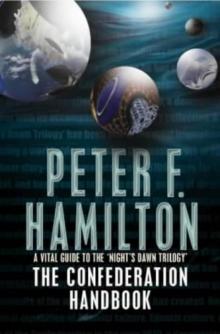 The Confederation Handbook
The Confederation Handbook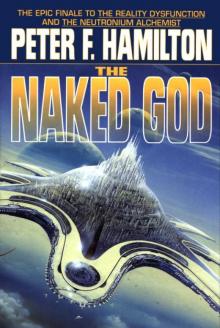 The Naked God
The Naked God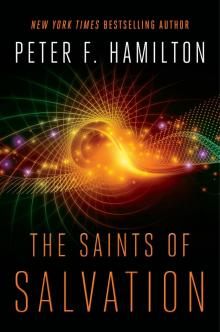 The Saints of Salvation
The Saints of Salvation The Void Trilogy 3-Book Bundle
The Void Trilogy 3-Book Bundle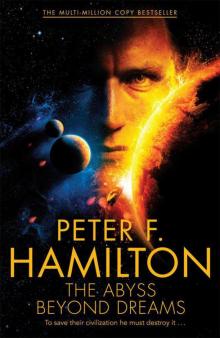 The Abyss Beyond Dreams
The Abyss Beyond Dreams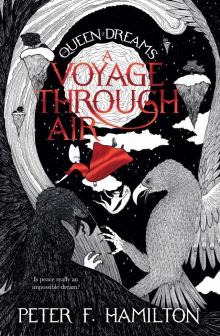 A Voyage Through Air
A Voyage Through Air Judas Unchained
Judas Unchained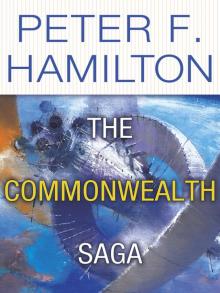 The Commonwealth Saga 2-Book Bundle
The Commonwealth Saga 2-Book Bundle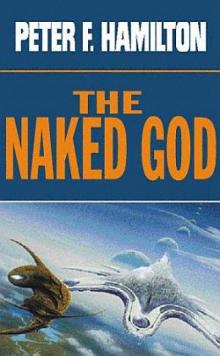 The Naked God - Flight nd-5
The Naked God - Flight nd-5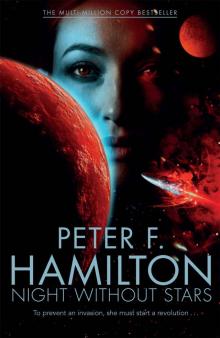 Night Without Stars (Chronicle of the Fallers Book 2)
Night Without Stars (Chronicle of the Fallers Book 2)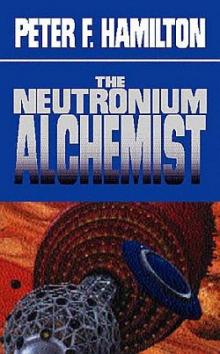 Neutronium Alchemist - Conflict nd-4
Neutronium Alchemist - Conflict nd-4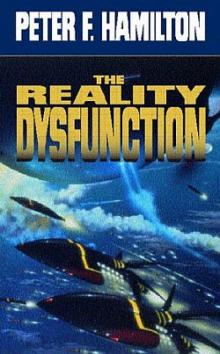 Reality Dysfunction - Expansion nd-2
Reality Dysfunction - Expansion nd-2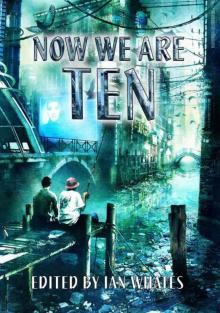 Now We Are Ten: Celebrating the First Ten Years of NewCon Press
Now We Are Ten: Celebrating the First Ten Years of NewCon Press Neutronium Alchemist - Consolidation nd-3
Neutronium Alchemist - Consolidation nd-3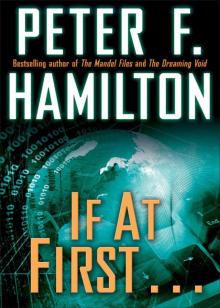 If at First . . . (Short Story)
If at First . . . (Short Story)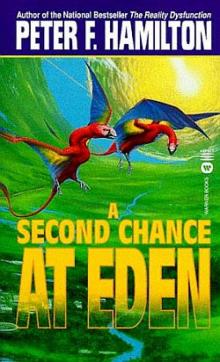 A Second Chance at Eden nd-7
A Second Chance at Eden nd-7 Judas Unchained cs-2
Judas Unchained cs-2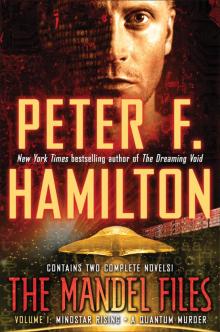 The Mandel Files, Volume 1
The Mandel Files, Volume 1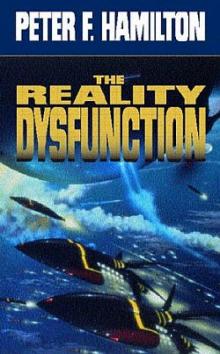 Reality Dysfunction — Emergence nd-1
Reality Dysfunction — Emergence nd-1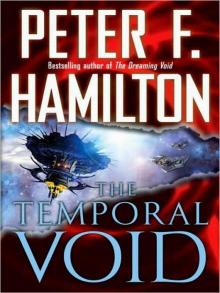 The Temporal Void (ARC)
The Temporal Void (ARC)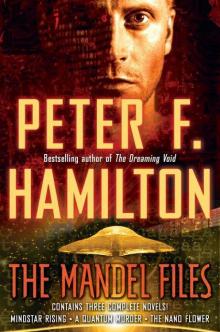 The Mandel Files
The Mandel Files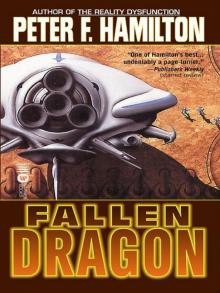 Fallen Fragon
Fallen Fragon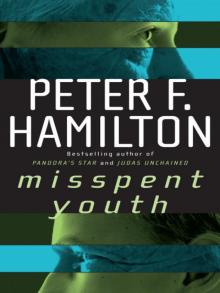 Misspent Youth (commonwealth saga)
Misspent Youth (commonwealth saga)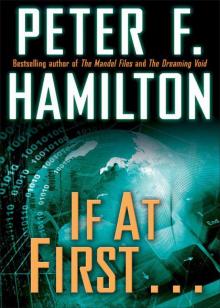 If at First...
If at First...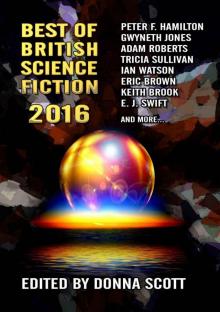 Best of British Science Fiction 2016
Best of British Science Fiction 2016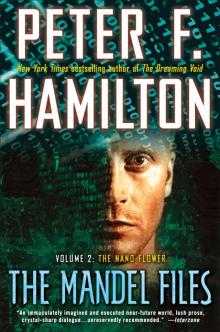 The Mandel Files, Volume 2
The Mandel Files, Volume 2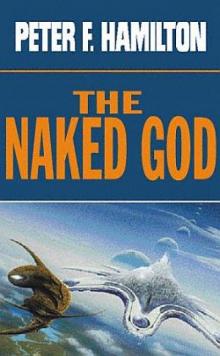 The Naked God - Faith nd-6
The Naked God - Faith nd-6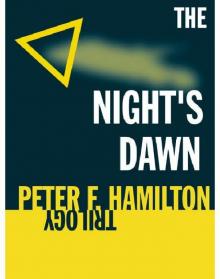 The Night's Dawn Trilogy
The Night's Dawn Trilogy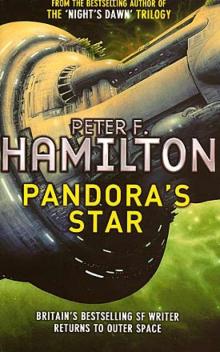 Pandora's Star cs-2
Pandora's Star cs-2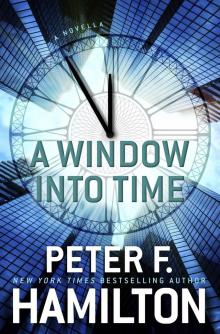 A Window into Time (Novella)
A Window into Time (Novella)